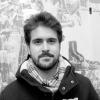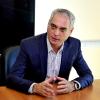
Research Topics
Area 1: History of Art
This area of concentration is intended to deal with the artistic and cultural object and theoretical-historiographic formulations associated to it. At the same time, it explores its connections with other domains of socio-cultural production. The area offers to post-graduation students a methodical training that enables them to work on the issues related to the History of Art as a whole, including theoretical, museological and conservation problems.
1.1) History of Art and Visual Studies
The History of Art has undergone several transformations that expanded its field, whether in what is considered Art, or in approaches applied to the artistic object and the system of arts. Themes like studies of image, materiality and circulation of objects, reproducibility, gender, history of exhibitions, media and visual anthropology enrich the theoretical framework of the field and present new objects, as well as new views of traditional themes. This line of research, therefore, aims at training students in the new fields of knowledge of History of Art, without being limited to pre-established geographic spaces or time frames, and debate theoretical issues referring to the development of new methods and instruments from a transnational perspective, as is the case of non-European artistic traditions.
1.2) Criticism, Curatorship and Preservation
Studies addressing works of art and architecture, in their original or current contexts, have been one of the big theoretical and methodological challenges for specialists and conservatives, but also to the general public that visits museums, exhibitions, historical sites and centers. Such challenges promote a complex understanding of social and cultural, visual and technical, anthropological and even philosophical values inherent in or assigned to the work of art, architecture, and preserved urban and rural contexts. Thus, this line of research prioritizes studies of works and collections, the artistic literature and the critic and esthetic production, built spaces and historical sites, aiming at a complex approach in the understanding of the most different social, cultural and artistic values of the Arts, their protagonists and institutions. It also contemplates the intellectual history in the production of Brazilian and international art historiography and criticism, and it counts on important reference collections available at Unicamp, like the special collection “Cicognara Library”, Alexandre Eulálio collection and the bibliographic collections of Unicamp’s Institute of Philosophy and Human Sciences.
Area 2: Political dynamics and languages
The area represents a collection of researches on social dynamics and the plurality of political languages and is constituted as a place for creation and debates on history and the historiographic process, with freedom before theoretical traditions and historiographic conducts. Politics is understood from a transdisciplinary perspective and in its multiple forms of manifestation in a field of tensions to be problematized based on the agents and languages that constitute it. The relations among the subjects in their social, economic, political and cultural dimensions in Americas, Europe and Africa are historicized in distinct times. While articulating contexts and problems traditionally studied in a compartmentalized way, an analytical angle, renewed for the study of political dynamics, is formed that puts into perspective the historiography’s historicity itself, particularly with regard to Eurocentrism. For such, the area comprises five main fields of reflection: 1) manifestations of the political and Christian religious thought (09th -21st centuries) in specific historical situations that are timely manifested in the middle-ages, in the Afro-Euro-American modernity and in the contemporaneity: their theoretical matrices and the themes imbricated in their argumentation (church, feudalism, individual, freedom, power, work, wealth, poverty, revolution, citizenship, inequalities, State); 2) interweaving of political practices (languages, governability, displacements, representation games, symbolic and utopian dimensions) and cultural practices (literature, edition, press, food, photography, cinema, illustrations and media), as expression of correlations of esthetics, politics, and dynamics of power; 3) analysis of Brazilian and international historiography exploring intellectual networks, links between memory and history and relations woven across concepts, representations and social movements; 4) production of the urban universe by the city’s historical constitution, considered and the symbolic and political place of citizen formation – the legal subject of rights - , as the way in which different forms of perception and appropriation of the built space – public and private - are developed, and as field of tensions constituted and perceived from the several languages and fields of knowledge; 5) political cultures of indigenous peoples, Africans and their descendants and the way they inform power relations and their fights for rights in situations of exclusion and marginalization. Such themes are articulated in two main axes, and each of them constitutes a line of research.
2.1) Historiography, Spatialities and Representations
Exploring the different forms through which political languages are defined and exteriorized is the core objective of the themes and fields of research of historiography, in spatialities and in the forms of discursive representation in their different theoretical perspectives and methods for treating the documentation. Here we are interested in investigating the political, social and cultural dimensions of different disciplines, in different times, perceived in the intersection with spatialities, contemplating urban, literary and editorial forms, languages and dynamics. To these concerns, we add an understanding of the relevance of transformation in the historical discourse and the discipline History in today’s public sphere. Therefore, the line is also interested in the study of the different modalities of publicization of the historical knowledge by media and digital humanities, among other possibilities, including the formation of networks and intellectual debates in global scale.
2.2) Displacements, Inequalities and Rights
The line comprises research turned to the study of inequalities in Africa and Americas in colonial and post-colonial contexts, with focus on the constitution of categories of exclusion and belongingness in the ambit of social, cultural, economic, political and ethnic-racial relations. The development of this problematic implies the study of political cultures of individuals in situation of exclusion and the way they inform the perception of their places in social relations, and their social struggles for prerogatives and political rights in face of the institutional apparatuses of colonial states and nation-states. For such, a bibliographic framework is mobilized that questions ethnocentric historiographic canons closely linked to the nation-state landmarks, emphasizing political dynamics constituted from the transit of people and ideas, particularly their different forms of collective identification.
Area 3: Social History, Differences and Conflicts
This area studies the production of differences of class, race and gender over time, seeking to understand how they act in the conformation of processes of domination and exploitation and how they impacted on identities, and the conflicts between the different historical subjects. The researches focus on the study of subaltern groups: their horizontal and vertical relations of confrontation and solidarity, their values and claims, as well as the ways they act. The researchers are also interested in the ways these groups were seen and represented by intellectuals, authorities, bosses and other agents which they face in different situations of their daily experience. The two lines of research that form the area are connected, and emphasize specific themes inside these wider matters.
3.1) Worlds of Work in Slavery and in Freedom
The line’s main theme is the experience of workers in slavery and in freedom, problematizing the borders of the several forms of compulsion to work. The researches analyze the relations between workers and other social subjects (masters, bosses, authorities), their forms of organization and action (brotherhoods, associations, clubs, unions, parties), struggles and social movements (quilombos, uprisings, insurrections, stoppages), ways of life and daily life (housing, health, leisure, religion, instruction, food), values and conceptions (traditions, habits, beliefs, ideologies, utopias), clashes in legal arenas, cultural and intellectual production (press, theater, literature, memories).
3.2) Africa and African Diaspora
This line studies the formation of societies, cultures and identities in Africa and the African diaspora in Americas, their transformations and the connections established in the Atlantic world. The research conducted by the line comprise the study of African and Afro-descendants (African cults of affliction, Christianity, candomblé, umbanda); African and diasporic identities (social, political and gender); the different forms of exploitation of African labor (enslaved, forced, paid); the construction of representations of African and Africans in the diaspora (through travel writings, memories, literature); the different forms of struggle in Africa and Americas (escape, quilombo, insurrection, independence movements); analysis of customary and positive law (customs, colonial laws, constitutions); and the construction of racism and racialization in African and diasporic societies. The line also includes the study of the formation of political and intellectual networks of contestation of colonial states, their relations with national liberation movements and post-independence social struggles.
Area 4: Culture, Memory and Visualities
This area of concentration is dedicated to the production of historical knowledge in its themes and multiple times, considering memory, visuality and culture as dimensions constitutive of the social. The theoretical-methodological perspective contemplated include the transformations in the historiographic field (connections, transits, discontinuities), the plurality of perspectives (Visual Studies, Studies of Heritages and Public Archeology, Cultural, Intellectual and Environmental History), inter-disciplinarity in fields like memory, studies of images, subjectivities, gender, discourses, narratives and the incorporation of repertoires that problematize the historical knowledge and its meanings in the contemporary world. The area considers the transforming power of the historiographic analysis, acknowledging that the work of historians is marked by their subjectivity, be the forms of writing History and historicization of happenings.
4.1) Gender, Subjectivity and Material Culture
This line of research approaches themes and problematizes matters connected to the production of subjectivity, sexuality, feminisms and environment, from the perspective of Cultural History, artistic expression and material culture. It investigates the historical forms of power and counter-power manifestations, articulating them with the concepts of class, gender, ethnicity and race as social constructions. It promotes reflections on the historicity of cultures and our present in their multiple time and space layers, like in critical analyses of neoliberalism, socio-environmental collapses and crises, as well as the investigation of ruptures, insurgencies and counter-conducts in collective and individual practices. The line works on the Material Culture, considered a new field of historical investigation, useful for studies on Classical Antiquity, as well as for studies related to Modernity and Post-Modernity. It proposes reflection on the contemporaneity understood as capitalism’s crisis phase, incorporating, on the one hand, the critic of representation and the mediating function of images, and, on the other hand, the critic of work and socialization of the value. It develops and encourages historical research on material culture, radical social, cultural and political movements in the 20th and 21th centuries, poetics and feminist practices, studies on counterculture and also the historical processes of socio-environmental degradation and regression that are notably speeding up in the last half century.
4.2) Visualities, Memory Policies and Contemporary Matters
The line, in its multiplicity, proposes historiographic approaches based on themes that express representational mobilities in contemporary history and in the present time. Historical researches have incorporated discussions, procedures and propositions that re-affirm the political, social and cultural function of the writing of History and its critical potential in the public debate. Denaturalizing speeches, questioning legitimations and institutionalities, understanding and criticizing dynamics of silencing and invisibilities, inquiring about subjects, voices and perspectives are basic principles of the historical knowledge practiced in this line. Among its fields, it investigates the relations involving memory policies, oblivions, erasing, and re-significations, seeking to understand the act of preservation – and destruction – as connected to practices, institutions, actors, uses and clashes on the materialities and intangible dimensions of cultural assets, whether in the field of studies of heritage, or in the field of visual studies, in the dimension of intellectual and cultural history, in studies on landscapes and the conformation on public spaces and domesticity. Such procedures are configured by governabilities, influenced by institutions, communities, construction of subjectivities, intellectual debates, protocols and sanctions of values and meanings, desires and convictions. This condensation of meanings in images, memory policies, heritages and intellectual debates instigates history and is entangled to a game of times and local, regional and global dynamics. The questions on the contemporary world exceed the time frame and leads to the understanding of space-time themes and logics that include the present time, the flows and interconnections involving classical themes, asymmetries, homogenizations and developments of singular and collective experiences in multiple scales. It is about observing how these time relations are articulated, from which the present derives and participates, providing the study of historical temporalities and their agency. The themes in this line of research involve the social dimension of intellectual practices, the historically constituted visual representations and the reflection on the plural manifestations of heritages. The line seeks to understand the strategies of memory, the historicity of concepts and the construction of the landscape and intellectual, visual, social and cultural routes.
1. História da Arte
Esta área de concentração tem por finalidade lidar com o objeto artístico e cultural e com as formulações teórico-historiográficas a ele vinculadas. Ao mesmo tempo, explora suas conexões com outros domínios da produção sociocultural. A área oferece aos alunos de pós-graduação um treinamento metódico que lhes permita trabalhar nas questões referentes à História da Arte como um todo, incluindo problemas teóricos, museológicos e de conservação.
1.1. História da Arte e Estudos Visuais
A História da Arte tem passado por diversas transformações que ampliaram seu campo de ação, seja no que é considerado Arte, seja nas abordagens aplicadas ao objeto artístico e ao sistema das artes. Temas como estudos da imagem, materialidade e circulação de objetos, reprodutibilidade, gênero, história das exposições, mídias e antropologia visual enriquecem o arcabouço teórico do campo e apresentam novos objetos, bem como novos olhares para temas tradicionais. Esta linha de pesquisa, portanto, tem como intuito formar alunos nos novos campos de conhecimento da História da Arte, sem se restringir a espaços geográficos ou recortes temporais pré-estabelecidos, e debater questões teóricas referentes ao desenvolvimento de novos métodos e instrumentos em perspectiva transnacional, como é caso das tradições artísticas não-europeias.
Docentes Permanentes

Claudia Valladão de Mattos

Gabriel Ferreira Zacarias

Luana Saturnino Tvardovskas

Luiz César Marques Filho

Patrícia Dalcanale Meneses

Pedro Paulo Abreu Funari
Docentes Colaboradores

Luciano Migliaccio

Nelson Alfredo Aguilar
1.2. Crítica, Curadoria e Preservação
Os estudos articulados às obras de arte e de arquitetura, nos seus contextos originais ou atuais, têm sido um dos grandes desafios teóricos e metodológicos para os especialistas e conservadores, mas também para o grande público que frequenta museus, exposições, sítios e centros históricos. Tais desafios visam fomentar uma complexa compreensão dos valores sociais e culturais, visuais e técnicos, antropológicos e mesmo filosóficos inerentes ou atribuídos à obra de arte, à arquitetura, aos contextos urbanos e rurais preservados. Assim, esta linha de pesquisa prioriza os estudos de obras, acervos e coleções, a literatura artística e a produção crítica e estética, os espaços edificados e os sítios históricos, visando uma abordagem complexa na compreensão dos mais diversos valores sociais, culturais e artísticos das Artes, seus protagonistas e suas instituições. Contempla ainda a história intelectual na produção da historiografia e da crítica da arte brasileira e internacional, contando com acervos de referência importantes disponibilizados na Unicamp, como a coleção especial “Biblioteca Cicognara”, o acervo Alexandre Eulálio e as coleções bibliográficas presentes no Instituto de Filosofia e Ciências Humanas da Unicamp.
Docentes Permanentes

Jorge Sidney Coli Júnior

Marcos Tognon
2. Dinâmicas e Linguagens Políticas
A área se configura como um coletivo de pesquisas sobre as dinâmicas sociais e a pluralidade de linguagens políticas e se constitui como um lugar de criação e debates sobre a história e o fazer historiográfico, com liberdade diante das tradições teóricas e condutas historiográficas. A política é compreendida em perspectiva transdisciplinar e em suas múltiplas formas de exteriorização em um campo de tensões a ser problematizado a partir dos agentes e das linguagens que o constituem. Historicizam-se as relações entre os sujeitos em suas dimensões sociais, econômicas, políticas e culturais na América, Europa e África, em distintas temporalidades. Ao articular contextos e problemáticas tradicionalmente estudados de forma compartimentada, forma-se um ângulo analítico renovado para o estudo das dinâmicas políticas que coloca em perspectiva crítica a própria historicidade da historiografia, particularmente no que toca ao eurocentrismo. Para tanto, a área constitui cinco campos principais de reflexão: 1) manifestações do pensamento político e religioso cristão (séculos IX- XXI) em situações históricas específicas, as quais se exteriorizam temporalmente na idade média, na modernidade afro-euro-americana e na contemporaneidade: suas matrizes teóricas e os temas imbricados em sua argumentação (igreja, feudalismo, indivíduo, liberdade, poder, trabalho, riqueza, pobreza, revolução, cidadania, desigualdades, Estado); 2) imbricamentos entre práticas políticas (linguagens, governabilidades, deslocamentos, jogos de representação, dimensões simbólicas e utópicas) e práticas culturais (literatura, edição, imprensa, alimentação, fotografia, cinema, ilustrações e mídias), como expressão de correlações entre estética, política e dinâmicas de poder; 3) análise da historiografia brasileira e internacional explorando redes intelectuais, vínculos entre a memória e a história e as relações tecidas entre os conceitos, representações e movimentos sociais; 4) produção do universo urbano pela constituição histórica da cidade, pensada como o lugar simbólico e político da formação do cidadão – o sujeito jurídico de direitos –, como modo pelo qual desenvolve diferentes formas de percepção e apropriação do espaço edificado – público e privado – e como campo de tensões constituído e percebido a partir de várias linguagens e áreas de conhecimento; 5) culturas políticas de indígenas, africanos e seus descendentes e o modo como elas informam relações de poder e suas lutas por direitos em situações de exclusão e marginalização. Tais campos temáticos são articulados em dois eixos principais, cada um deles constituindo uma linha de pesquisa
2.1. Historiografia, Espacialidades e Representações
Explorar as diversas formas pelas quais as linguagens políticas se definem e se exteriorizam constitui objetivo central dos temas e campos de pesquisas inscritos na historiografia, nas espacialidades e nas formas de representação discursivas em suas diferentes vertentes teóricas e métodos de tratamento da documentação. Interessa-nos investigar as dimensões políticas, sociais e culturais de diferentes disciplinas, em diversas temporalidades, aqui percebidas no entrecruzamento com as espacialidades, contemplando formas, linguagens e dinâmicas urbanas, literárias e editoriais. Soma-se a essas preocupações um entendimento da importância das transformações do discurso histórico e da disciplina História na esfera pública hodierna. Por conseguinte, também interessa à linha o estudo das diferentes modalidades de publicização do conhecimento histórico por intermédio das mídias e humanidades digitais, entre outras possibilidades, nelas incluídos a formação de redes e os debates intelectuais em escala global.
Docentes Permanentes

Izabel Andrade Marson

Josianne Francia Cerasoli

Maria Stella Martins Bresciani

Néri de Barros Almeida

Rodrigo Camargo de Godoi

Rui Luis Rodrigues

Thiago Lima Nicodemo
2.2. Deslocamentos, Desigualdades e Direitos
A linha congrega pesquisas voltadas ao estudo das desigualdades na África e nas Américas em contextos coloniais e pós-coloniais, com enfoque na constituição de categorias de exclusão e pertencimento no âmbito das relações sociais, culturais, econômicas, políticas e étnico-raciais. O desenvolvimento desta problemática implica o estudo das culturas políticas de sujeitos em situação de exclusão e o modo como elas informam a percepção de seus lugares nas relações sociais e as suas lutas por prerrogativas e direitos políticos frente aos aparatos institucionais dos estados coloniais e do estado-nação. Para tanto, mobiliza-se um referencial bibliográfico que questiona os cânones historiográficos etnocêntricos estritamente atrelados aos marcos do estado-nação, colocando em evidência as dinâmicas políticas constituídas a partir dos trânsitos de pessoas e ideias, particularmente suas diferentes formas de identificação coletiva.
Docentes Permanentes

Aldair Carlos Rodrigues

Ana Silvia Volpi Scott

Camila Loureiro Dias

Luiz Estevam de Oliveira Fernandes

Omar Ribeiro Thomaz

Raquel Gryszczenko Alves Gomes

Rodrigo Camargo de Godoi
Docentes Colaboradores

Leandro Alves Teodoro

Leila Mezan Algranti
3. História Social, Diferenças e Conflitos
Esta área estuda a produção das diferenças de classe, raça e gênero ao longo do tempo, buscando entender de que maneira elas atuaram na conformação dos processos de dominação e exploração e como impactaram as identidades e os conflitos entre os diversos sujeitos históricos. As pesquisas enfocam o estudo dos grupos subalternos: suas relações horizontais e verticais de confronto e solidariedade, seus valores e reivindicações, bem como suas formas de atuação. Interessam também aos pesquisadores da área as maneiras pelas quais esses grupos foram vistos e representados por intelectuais, autoridades, patrões e outros agentes com os quais se defrontam em diferentes situações de sua experiência cotidiana. As duas linhas de pesquisa que compõem a área estão conectadas, enfatizando temáticas específicas no interior destas questões mais amplas.
3.1. Mundos do Trabalho na Escravidão e na Liberdade
A linha tem como tema principal a experiência dos trabalhadores na escravidão e na liberdade, problematizando as fronteiras entre as várias formas de compulsão ao trabalho. As pesquisas analisam as relações entre os trabalhadores e outros sujeitos sociais (senhores, patrões, autoridades), suas formas de organização e atuação (irmandades, associações, clubes, sindicatos, partidos), lutas e movimentos sociais (quilombos, revoltas, insurreições, paralisações), modos de vida e cotidiano (habitação, saúde, lazer, religião, instrução, alimentação), valores e concepções (tradições, costumes, crenças, ideologias, utopias), embates nas arenas legais e judiciais, produção cultural e intelectual (imprensa, teatro, literatura, memórias).
Docentes Permanentes

Ana Silvia Volpi Scott

Claudio Henrique de Moraes Batalha

Fernando Teixeira da Silva

Lucilene Reginaldo

Ricardo Figueiredo Pirola

Robert Wayne Andrew Slenes
Docentes Colaboradores

Sidney Chalhoub

Silvia Hunold Lara
3.2. África e Diáspora Africana
Esta linha estuda a formação de sociedades, culturas e identidades na África e na diáspora africana nas Américas, suas transformações e as conexões estabelecidas no mundo atlântico. As pesquisas conduzidas pelos integrantes da linha englobam o estudo da religiosidade de africanos e afro-descendentes (cultos africanos de aflição, cristianismo, candomblé, umbanda); das identidades africanas e diaspóricas (sociais, políticas, de gênero); das diferentes formas de exploração do trabalho africano (escravizado, forçado, assalariado); da construção de representações da África e dos africanos na diáspora (em relatos de viagens, memórias, literatura); das variadas formas de lutas na África e nas Américas (fuga, quilombo, insurreição, movimentos de independência); da análise do direito consuetudinário e positivo (costumes, leis coloniais, constituições); e da construção do racismo e da racialização nas sociedades africanas e diaspóricas. Interessa ainda o estudo da formação de redes políticas e intelectuais de contestação aos estados coloniais, suas relações com os movimentos de libertação nacional e com as lutas sociais pós-independência.
Docentes Permanentes

Lucilene Reginaldo

Omar Ribeiro Thomaz

Ricardo Figueiredo Pirola

Robert Wayne Andrew Slenes
Docentes Colaboradores

Silvia Hunold Lara
4. Cultura, Memória e Visualidades
Esta área de concentração dedica-se à produção do conhecimento histórico em suas temáticas e múltiplas temporalidades, considerando a memória, as visualidades e a cultura como dimensões constitutivas do social. As perspectivas teórico-metodológicas contempladas incluem as transformações do campo historiográfico (conexões, trânsitos, descontinuidades), a pluralidade de perspectivas (Estudos Visuais, Estudos em Patrimônio e em Arqueologia Pública, História Cultural, Intelectual e Ambiental), a interdisciplinaridade em campos como memória, estudos das imagens, subjetividades, gênero, discursos, narrativas e a incorporação de repertórios que problematizam o saber histórico e seus sentidos no mundo contemporâneo. A área considera a potência transformadora da análise historiográfica, reconhecendo que o trabalho dos historiadores e historiadoras é marcado por suas subjetividades, pelo olhar crítico em relação às fontes e às tradições historiográficas, pelas formas de escrita da História e pela historicização dos acontecimentos.
4.1. Gênero, Subjetividade e Cultura Material
Esta linha de pesquisa aborda temas e problematiza questões ligadas à produção da subjetividade, à sexualidade, aos feminismos e ao meio ambiente, na perspectiva da História Cultural, da expressão artística e da cultura material. Investiga as formas históricas de manifestação do poder e dos contrapoderes, articulando-as aos conceitos de classe, gênero, etnia e raça como construções sociais. Promove reflexões sobre a historicidade das culturas e de nosso próprio presente, em suas múltiplas camadas temporais e espaciais, como nas análises críticas do neoliberalismo, dos colapsos e crises socioambientais, assim como na investigação das rupturas, insurgências e contracondutas nas práticas coletivas e individuais. Trabalha com a Cultura Material, considerada como um novo campo de investigação histórica, útil para os estudos sobre a Antiguidade Clássica, assim como para os relativos à Modernidade e à Pós-Modernidade. Propõe reflexões sobre a contemporaneidade, entendida como fase de crise do capitalismo, incorporando, por um lado, a crítica da representação e da função mediadora das imagens, e por outro, a crítica do trabalho e da socialização do valor. Desenvolve e incentiva pesquisas históricas sobre cultura material, movimentos sociais, culturais e políticos radicais dos séculos XX e XXI, poéticas e práticas feministas, estudos sobre contracultura e também sobre os processos históricos de degradação e regressão socioambiental que vêm se acelerando notadamente no último meio século.
Docentes Permanentes

Gabriel Ferreira Zacarias

Luana Saturnino Tvardovskas

Luiz César Marques Filho

Luzia Margareth Rago

Pedro Paulo Abreu Funari
4.2. Visualidades, Políticas de Memória e Questões do Contemporâneo
A linha, em sua multiplicidade, propõe abordagens historiográficas a partir de temáticas que expressem as mobilidades representacionais da história contemporânea e do tempo presente. As pesquisas históricas têm incorporado discussões, procedimentos e proposições que reafirmam a função política, social e cultural da escrita da História e seu potencial crítico no debate público. Desnaturalizar discursos, questionar legitimações e institucionalidades, compreender e criticar dinâmicas de silenciamentos e invisibilidades, indagar sobre sujeitos, vozes e perspectivas são princípios básicos do conhecimento histórico praticado nesta linha. Dentre seus campos de atuação, investiga as relações entre políticas de memória, os esquecimentos, apagamentos e ressignificações, buscando compreender o ato da preservação - e da destruição - como ligados a práticas, instituições, atores, usos e embates sobre as materialidades e as dimensões intangíveis dos bens culturais, seja no campo dos estudos sobre o patrimônio, seja no campo dos estudos visuais, na dimensão da história intelectual e cultural, nos estudos sobre as paisagens e na conformação sobre os espaços públicos e a domesticidade. Tais procedimentos são configurados por governabilidades, perpassadas por instituições, comunidades, construção de subjetividades, debates intelectuais, protocolos e sanções de valores e significados, desejos e convencimentos. Essa condensação de sentidos nas imagens, nas políticas de memória, nos patrimônios e debates intelectuais instiga a história e enreda-se a um jogo de temporalidades e de dinâmicas locais, regionais e globais. As questões do contemporâneo ultrapassam o marco cronológico e remetem à compreensão de temas e lógicas espaço-temporais que incluem o tempo presente, os fluxos e interconexões que envolvem temas clássicos, assimetrias, homogeneizações e desdobramentos de experiências singulares e coletivas em escalas múltiplas. Trata-se de observar como se articulam relações temporais, das quais o presente deriva e participa, propiciando o estudo das temporalidades históricas e seus agenciamentos. Os temas desta linha de pesquisa envolvem a dimensão social das práticas intelectuais, das representações visuais historicamente constituídas e a reflexão sobre as plurais manifestações dos patrimônios. Busca-se compreender as estratégias de memória, a historicidade dos conceitos e a construção da paisagem e percursos intelectuais, visuais, sociais, políticos e culturais.
Docentes Permanentes

Cristina Meneguello

Iara Lis Franco Schiavinatto

José Alves de Freitas Neto

Luiz Estevam de Oliveira Fernandes

Patrícia Dalcanale Meneses


